Friday, September 28, 2018
Thursday, September 27, 2018
How disability insurance helps protect your financial health (Part II)
In part one of this two-part series, we discussed how disability and life insurance can be an important part of wellness. In this blog post, we’ll take a closer look at how ADA student members disability insurance can help protect your financial wellness in the face of a disabling illness or injury.
Dentists and disabilities: Here’s what you should know
According to disability claims filed with ADA Members Insurance Plans issued by Great-West Financial®, the greatest number of disabilities among ADA members are related to the musculoskeletal system. These can range from back or neck injuries to degenerative disc disease or herniations. Injuries like these are not unusual, considering the physical toll dentistry can take with long hours of standing, bending over into awkward positions and repetitive hand motions.
Other common disabling illnesses claimed by ADA members also include nervous system diseases, arthritis, cancer and mental illness. All of these illnesses can prevent you from working for months, years or even permanently. This is why it’s so important for dentists to be protected by disability insurance.
Why dental students need disability protection
We offer disability and life insurance to ADA student members at no cost because even something as random as a spill off your bike could leave you disabled, interrupting or preventing you from completing your studies or pursuing your career. This could leave you or your loved ones with significant debt.
Access the convenience of conversion
As early as January of your D4 year, you can convert your ADA student members disability insurance to the more comprehensive, paid insurance plans for practicing ADA members without a medical exam. Many ADA student members choose to convert early so they can start their professional life with the confidence of knowing that they have the coverage they need to help keep their loved ones financially protected at exclusive ADA member rates.
Did you know? You can register for your student members insurance at insurance.ada.org/test. You can even get a $5 Gourmet Coffee Card if you register your account before Oct. 31.*
To learn more about ADA disability insurance, visit insurance.ada.org, or contact your Great-West Financial Insurance Plan Specialist at planspecialist@great-west.com or 855-411-5198.
~Nancy Fix, Great-West Financial® Insurance Plan Specialist
DISCLAIMER:
* Only one Gourmet Coffee Card per student. Offer ends Oct. 31, 2018.
Visit www.insurance.ada.org, call 855.411.5198 or email planspecialist@greatwest.com for more information and to learn about coverage provisions, limitations, terms for keeping coverage in force and the option to convert to member coverage after graduation by paying ADA member premiums and maintaining ADA membership.
Student coverage is issued regardless of your condition if you are under 45. If you are 45 or older, you can apply for the no-cost coverage and all student program features by providing proof of good health. Coverage renews automatically each academic year. Individuals may convert coverage to the plans for practicing dentists after graduation by paying ADA member premiums and maintaining ADA membership.
Benefits are not payable, as defined by the respective policy, for death or disability resulting from a sickness, disorder, physical condition, or symptom that existed or was treated within 12 months prior to enrollment.
This material is not a contract. Benefits are provided through a group policy (Nos. 1108GDH-SDP Student Disability and 104TLP Term Life) filed in the State of Illinois in accordance with and governed by Illinois law, issued to the American Dental Association by Great-West Financial®. The ADA is entitled to receive royalties from the ADA Members Insurance Plans. Coverage is available to eligible ADA members and student members in all fifty states and US territories under the aforementioned group policy. Each Plan participant will receive a Certificate of Insurance explaining the terms and conditions of the policy. Great-West Financial® is a marketing name of Great-West Life & Annuity Insurance Company, Corporate Headquarters: Greenwood Village, CO; Great-West Life & Annuity Insurance Company of New York, Home Office: NY, NY, and their subsidiaries and affiliates. GWL&A is not licensed in New York, but eligible members residing in New York may request coverage under the aforementioned group policy. ©2018 Great-West Life & Annuity Insurance Company. All Rights Reserved. AM595104-0918
ADA® is a registered trademark of the American Dental Association and Great-West Financial® is a registered trademark of GWL&A.
This content is sponsored and does not necessarily reflect the views of ASDA.
Wednesday, September 26, 2018
An atheist walks into a Baptist church…

There’s no punchline here.
When my patient care coordinator Kenna invited me to attend the 100th anniversary of her church, I didn’t know what to say. Should I tell her that I was raised as an atheist? Maybe explain the whole Irish-grandpa-rebelling thing? I decided to spare her the details and accepted the invitation with a smile and an assuring, “I’ll be there!”
Sunday morning rolled around, and my schedule quickly began to fill up with family obligations and the usual business of a new week. This, combined with the fear of being in an unfamiliar social situation, brought me close to canceling. Nonetheless, I drove 40 minutes to Greater Mt. Zion Baptist Church on Detroit’s east side.
I pulled around the corner of the church, desperately trying to find parking and decided upon a spot next to a small, ivy-covered home. I nervously walked to the side door to be greeted with a hug and an envelope. Music blasted through the speakers as I shyly navigated the aisles searching for Kenna.
I picked a conservative seat in the back by myself before I got the nerve to ask where Kenna would be. They ushered me to the first row, stating that was where she usually sat. Little did I know that Kenna was the pastor’s wife.
It is fascinating who we are when we are uncomfortable. I spent much of the service with my eyes fixed on the musicians, nodding my head to the beat. My legs were crossed — even while standing — and I kept my arms pulled tight to my body. Kenna walked in and didn’t notice me at first, but she moved to the bench in front of me about halfway through. This meant that I had to spend an hour by myself. Pastor Anthony Hill walked out, and there was not a quiet soul in the room. I quickly realized why Kenna liked me.
Pastor Hill was vibrant, loud, energized and everything that I usually am but couldn’t find the comfort to be at that moment. Words would roll off his tongue and he would command, “Write that down!” I nodded in my usual “yassss” attitude until I glanced around and noticed that everyone around me was actually jotting down his notes. I took out the envelope I was given at the beginning and decorated it with all of his Tony-isms.
I didn’t go to church often as a kid. It was unusual in my family so if I wanted to attend, I had to find friends to go with. Thus, being by myself, in a Baptist church nonetheless, was a completely unfamiliar situation.
Church folks will talk about you and your guilt.
But a godly person will tell you: “Just like He delivered me, He can deliver you.”
I love listening to Ted Talks and motivational speeches that follow the same idea as a religious monologue. You’ll notice that everyone in the room is looking for the same thing, but every person gets something completely different out of it. We went looking for community and the word of the Lord; some people walked away with that, but others such as myself walked away with inspirational lessons for life and one’s profession.
There is a lot that can be learned about dentistry when we step outside of the clinic. When I listened to Pastor Hill’s sermon again, I noticed how he would call people out during his talk, as if he was speaking with them one-on-one. At one point, he even gave a shout out to the dental school and students in the room. Knowing something special about your patients is something that is often overlooked at school. Even if all you can remember is your patient’s child’s name, that’s still something special they may not have experienced before. People like to feel included and understood.
Additionally, we talked about finances and people achieving their dreams and goals. I complain a lot about dental school. I’m so busy making custom trays and reviewing medical histories and procedures that I forget there were days in undergrad where I cried at the thought of not getting in.
Sometimes, wellness is about self-reflection and knowing what you need. It’s about stepping outside of your comfort zone. I’m not saying you have to go to every social event. I’m not even saying go to church every Sunday. But the next time you’re having a bad day, ask yourself what you really need. Do you need a day off? Do you need to drink more water? Maybe you just need some motivation or a community or change of scenery.
In the wellness community, we tend to think of trying new things in terms of rock climbing and meal prepping. Think outside the box and take care of yourself. Give your body what it needs, and nourish your mind and soul.
A peaceful heart gives life to the body.
—Proverbs 14:30
~Casey Rhines, Detroit Mercy ’20, Chapter Wellness Chair
Tuesday, September 25, 2018
What millennials should know about credit

When it comes to finances, there are two important areas where a young person can actually do something that has impact on his or her future. The first is to create a budget (yes, you may groan, but it’s true — and be advised that is not the topic of this post). The second is getting smart about your credit score.
What is a credit score?
A credit score is a numerical expression based on a level analysis of a person’s credit files to represent the creditworthiness of an individual. Lenders such as banks and credit card companies use credit scores to evaluate the potential risk posed by lending money to consumers and to mitigate losses due to bad debt. Lenders use credit scores to determine who qualifies for a loan, at what interest rate and what credit limits.
Know your score before you share it.
Many people only discover their credit score when they apply for a loan or when they sign up for cellphone service, utilities or cable TV. It’s best to know your score before you actually apply to use it.
There are three main credit reporting agencies: TransUnion, Experian and Equifax. Each of them captures your credit rating slightly differently. It’s smart to be tuned in to each one. You are entitled to a free copy of your credit report annually. Visit annualcreditreport.com to request it from each of the three reporting firms.
I have my credit report — now what?
Like any discipline or specialty, credit has its own “language.” Familiarize yourself with it. For example, you will want to know what’s a good score and where there’s room for improvement. Anything higher than 700 is considered good credit. It will qualify you for more favorable offers and lower interest rates. Looking for a good deal on a car? Start with improving your credit score.
Look for errors or inconsistencies in your report.
You’d be amazed at how often there are mistakes and inconsistencies in credit reports. This is why you need review them carefully and highlight anything that looks questionable. It’s up to you to contact the reporting agency to alert them to the error and ensure that necessary action is taken to update your report. Let them know in writing exactly what is incorrect, state what you believe to be true and include any documentation that will help you support your claim.
Stay on top of your bills.
Another reason to read your report is to see if a long-forgotten or lost bill is causing issues. Say an unpaid balance of a negligible amount on an old bill goes to collection, and you never realize it. Guess what? That little bill may make an unpleasant guest appearance on your credit report. Regularly reviewing your reports can help you tie up loose ends with creditors.
Settle up your debts and renegotiate more favorable terms.
More easily said than done, right? Maybe. It’s best to wipe out old debts, and if you have lots of small ones, take care of those so that you can figure out how to handle the bigger ones. Larger debts need to be paid off based on interest rates (higher interest rate loans are costlier and should be paid off first.) Regardless of what strategy you choose to follow, you’re well advised to contact all of your lenders to see if there is any room to negotiate better terms. People actually want to be paid off, so if you show a good faith effort, you may find that they will settle for a lesser amount.
Keep your balances low and don’t be tempted to raise your credit line.
While you’re developing new habits, consider committing to pay off your balances every month or keep them as low as possible. Also, even if you get the most tantalizing offers to raise your credit line, try to resist the temptation to take them.
Turned down? Find out why you were rejected.
If you are ever declined for a loan, the 2011 Fair Credit Reporting Act gives you the right to ask why. The lender is obligated to respond in writing as to their decision. Find out the specific reasons and take the necessary steps to remedy your situation.
There is a light at the end of the tunnel.
If there’s a takeaway from all this it’s that it is possible to improve your credit score. It will take a combination of more mindful spending and more intentional debt reduction. It will take time, so be patient. The more you pay attention to your credit, the better it will become. You are in the unique position to start your life with good money habits, and even if you have not started out as strong as you’d hoped to, you have lots of time to get back on the right track.

All information is believed to be from reliable sources; however, we make no representation as to its completeness or accuracy. If assistance or further information is needed, the reader is advised to engage the services of a competent professional.
Treloar & Heisel, Inc. does not offer business consulting, tax or legal advice.
Insurance products offered separately through Treloar & Heisel and Treloar & Heisel Risk Management, which are divisions of Treloar & Heisel, Inc.
This content is sponsored and does not necessarily reflect the views of ASDA.
Monday, September 24, 2018
Therapy-dog patients help craniofacial patients smile

As we began setting up the sports-themed carnival at Penn, we heard the sound of dogs barking. Just like us, they were getting ready for the exciting and emotional day ahead. The Operation Smile Club from Temple Dental teamed up with Children’s Hospital of Philadelphia (CHOP) to help make the sixth annual Best Friends Bash (BFB) spectacular. After seeing child after child smile and laugh on June 2, 2018, the day proved to be nothing short of spectacular.
Every year, the BFB sets out to create a space for craniofacial-different children and their families to belong, have fun and connect with other families and generations facing similar challenges. They share in a similar road of appointments, surgeries, stresses and rejections. The bash is a place where judgment, mirrors and self-awareness are left at the door. Diana Sweeney, one of the co-leaders of the bash says it is a “safe zone,” a place where the kids are just like everyone else. She says there is no need to be shy, feel badly about appearances or feel left out.
The patients from the Division of Plastic and Reconstructive Surgery at CHOP meet the furry friends from the University of Pennsylvania School of Veterinary Medicine that have also had operations, whether it was to their face, jaw or other parts of their bodies. The dogs encourage the kids that they are not alone. Sweeney says, “The dogs are willing to give back the love they receive. There is no craniofacial difference as far as they are concerned.” She says, “If only the world could see it the same way.”
These are specially trained, certified therapy dogs. Many visit CHOP on a regular basis to lay with the children in their hospital rooms. Sweeney says, “I think children with facial differences and dogs with differences relate in a way that we do not always see. You can almost feel a kind of understanding between the two, a kinship born from negativity that turns to strength and positivity.”
Sweeney likes to remain behind the scenes, but none of this could happen without her constant dedication. She, along with Maria Soltero-Rivera, who works from San Francisco, make this event happen. Sweeney is the only parent liaison in pediatric plastic surgery in the country. She is a nonmedical person who advocates daily for the children at CHOP. She is available to the families day and night. She says that sometimes parents have needs that can’t be addressed during business hours, and she wants to be there for them when they do.
Sweeney is a grateful mom of a craniofacial patient for 43 years now. She says, “I never forget to be thankful for all that life has given me and my son. We were the recipients of enormously skilled physicians, when craniofacial surgery was in its infancy. I want to make life as easy as possible for our patients. They need to know that they are so much more than their faces.”
The testimonies from the bash prove the kids do feel a sense of freedom at the event. Sweeney described a special moment when she watched a child who is normally shy play kickball with two older boys. She says, “He laughed and forgot all about his facial differences. Watching him focus on fun instead of his appearance made all of the work worth it. For that short time, he was just like other boys his age: running, kicking, laughing.” She wishes every day could be like that for him. This is the very heart and mission of the BFB. To provide a day for kids to forget their fears, insecurities, exhaustion and mountains, and simply be kids.
Sweeney was more than grateful for the hands-on help from the Temple Operation Smile Club. She says the team was amazing, bringing their own fun projects for the kids. Sweeney says the team added an “enthusiasm that was contagious.” Operation Smile dressed the bare walls of the Vernon and Shirley Hill Pavilion with sports flags and screaming fan posters. The team brought toss games that lead to a treasure chest full of prizes and a table full of cookies and icing for the kids to decorate their own basketballs and footballs. After Philly sleighed sports this year after wins like the Eagles and Villanova, it only seemed appropriate to go full-on sports for the theme.
Sweeney says, “Some of our patients are quite shy, and the Temple dental students related to that, drawing them out to participate and enjoy themselves. I cannot say enough about their contribution. I would be lost without their creativity.” Sweeney says the team exceeded her “wildest expectations.” The bash exceeded all of Operation Smile’s expectations as well.
Anum Ali, the president of Temple’s Operation Smile Club and fourth-year student, wants to expand the event to more families, doctors and volunteers. “I think it is a great event for all ages, and levels of dental professionals to get involved with.” She says, “It’s important for families and kids to interact with each other at events that are light-hearted and full of exciting activities.”
Another Operation Smile member and third-year Temple student, Tanya Aboukaff, says it was a humbling opportunity to meet the kids and parents who have been through hardships regarding oral and facial surgeries. Aboukaff says the BFB, “allows the children to have fun and have a place and time to roam and play and not worry about criticism from others.” For the families, it’s special because they get to see their children having fun and meet other families with similar experiences. The fundraising chair of Operation Smile, Lauren Miller, attended the event for her second year in a row. Seeing all the dogs and kids again was her favorite memory. The third-year says, “The BFB helps families forget about their medical worries and brings together other families going through the same journey.”
Sweeney bases this year’s success on the participation of the patients in the activities and their comfort level during those three hours. She says, “[The patients] were busy the entire time eating, playing games, meeting new friends, enjoying themselves, playing with the dogs without reservation and without waiting for a judgmental look from someone.”
Sweeney says one of the biggest challenges is finding volunteers to participate in the program. But she has found that after a volunteer comes to the bash, they “never want to miss the experience again.” This holds true for Temple Dental’s Operation Smile Club, as they have committed to coming back year after year.
If you want to be a part of next year’s puppy and patient party, don’t hesitate to reach out to Temple’s Operation Smile team for more information.
As for the plans for next year? Sweeney says, “So far, we have theme … outer space! We haven’t really spoken about developing that theme, but I think I will call NASA and see where that gets me.”
I guess the sky’s the limit.
~Angela Walter, Temple ’20, ASDA Contributing Editor
Friday, September 21, 2018
Thursday, September 20, 2018
Make the most of technology in a dental practice

Look around and see how many people have their noses buried in their cellphones. Maybe you’re even reading this on your cellphone now. We’re deep in the age of technology, and people enjoy the convenience it provides. Through their cellphones, tablets, etc., patients are exposed to reviews about your future dental office, appointment reminders via email, information about treatment from Google – the list goes on. If your business isn’t taking advantage of the technological resources available to you, then it could suffer. Here are some ways technology can help you in practice.
Keep track of your patients with a computer database.
It wasn’t long ago that files for patients were buried among thousands of others, locked away in file cabinets. Now, with the use of computer databases and dental technology, it’s simple to store files and find them again at the patients’ next appointment. In most databases, you can even leave notes so that the doctor or dental team member is privy to any necessary information about the patient. As an added benefit, some computer databases and dental systems will allow you to check your patients’ files without being physically present in the office.
Connect multiple offices.
If you plan on having multiple offices, a computer database can be an even bigger benefit. Sometimes patients may switch from one location to another in your business’s umbrella. While the business and services offered may be the same, in the past, you would have had to find the patients’ files and send them to the other office. When you use a computer database, the files are all shared on one system. No matter where the patient receives treatment, his or her files can be accessed. It makes a more seamless transition for the patient and less work for you and your team.
Invest in the most up-to-date technology.
Technology in the dental industry is evolving at a rapid pace, especially with intraoral scanners quickly becoming popular in dental offices. Dentists who use scanners say they have more accurate reporting, faster seat times and in some cases, lower lab costs and higher turnaround time. Digital impressions also eliminate much of the discomfort that patients experience when receiving traditional impressions. Digital scanners also give your office a competitive edge over offices in the area who may not have advanced technology.
Use the internet to your advantage.
One of the greatest marketing tools is the internet. There’s no easier way to reach a vast majority of current and new patients than by going online. Websites allow patrons to have access to detailed information about the business. There should be basic information such as location and services offered, but consider including photos of the office or information about the dentists as well. Patients will be especially thankful if they are able to book appointments on your website. You should also create a Facebook page where you can share information about what’s going on in the dental industry as well as office culture, such as photos of your staff. Get creative!
To dive deeper into some of the newest technology hitting the market today, attend our upcoming webinar “Cost of Technology: Everyone Wants it, but Can You Afford It?” on Sept. 25. Heartland Dental-supported doctors will discuss our clinical technology and supplies vetting process, as well as how we determine what products will have the highest return on investment.

~Heartland Dental Team
This content is sponsored and does not necessarily reflect the views of ASDA.
Wednesday, September 19, 2018
What I did to improve my mental well-being

Health care providers have a knack for neglecting their own health. We focus on our patients, but we need care, too. Over the last four years, I learned what worked (and what didn’t) to mentally, physically and socially keep myself well. These are my tips as a senior to help you get through school and stay well.
Mental health
- Engage in passion projects. No one is ever “just” a dental student. You have passions and interests. Pursue them. In dental school, I took up photography and videography and made a comedy podcast with my friends. Find things that keep you passionate and drive you through the day.
- Dental school isn’t forever. Dental school, in the long run, is a brief fours years before you begin the rest of your life. Remind yourself that it isn’t uncommon to feel stuck in one place in dentistry at times. However, keeping an end date in mind will allow you to maintain sight of the bigger picture.
- Make studying short. Use a Pomodoro or kitchen timer (or download an app) to break your studying into chunks. Breaking up your work into 25-minute sessions with five-minute breaks between will make studying seem more digestible. Some studies have shown we only have an attention span somewhere between 20 to 45 minutes, and I can attest! The Pomodoro technique was perfect to keep me engaged. Try it next time you study.
Physical health
- Stay active. For me, exercising at the gym helps to energize me for the day. I’m an early bird, so getting my blood flowing early kept me from dozing off in class. If you’re new to the gym, remember to start slowly. Begin with a jog every other day and gradually increase your routine. Your body will thank you, and you’ll feel healthier over time. If you plan on going before school, set a bedtime and alarm. Consistency is key to progress. The first week might be tough, but once you get into a routine, you’ll feel more in control of your days, your productivity and your mood.
- Get a gym buddy. This is particularly helpful in dental school, as your friends from home won’t understand the struggles of preparing a MOD on #14 for the first time. Another dental student can motivate you in the gym and in the preclinic. They can be your confidant because they understand what you deal with on a daily basis. If you’re wondering how to find a partner, just ask. You’ll be surprised how many people are on the verge of hitting the gym but waiting for that extra nudge to go.
- Maintain a good diet. A healthy body starts with a healthy diet. If you’re able to, prepare food over the weekend for healthy lunches. Dental school is draining, and the best thing to fuel you up for the week is some good grub. I found Sundays to be the best time to prepare. I searched for meal prep recipes online, shopped for ingredients in the morning and spent a lazy Sunday listening to my music and cooking food for the week. It sets a nice routine to your week and gives you time to unwind. And don’t forget: Tupperware is essential for meal prep! Also, find creative ways to mix healthy foods into your diet. Replace soda with seltzer water, pretzel sticks with carrot sticks and fresh fruit for cookie bags. You can even make shakes (there are hundreds of recipes online) to find creative, easy recipes that incorporate fruits and vegetables into your diet.
Social health
- Find a social support network. We’re becoming dentists because we like working with people. It’s important to not only support your patients but to surround yourself with good friends. Find a support network in dental school that you can be vulnerable with. Being surrounded by a few close people you know and trust is key in maintaining your balance as a provider. We’re in a high-performing graduate school, which means people hide their emotions and stresses, but letting that out is therapeutic. Find classmates who listen and do not judge you. Everyone is going through the same problems (even if they don’t show it), and everyone can use a listening ear.
- Maintain your relationships. It’s easy to get lost in the echo-chamber of preclinic, worrying about how your preps look, but having a support network away from school is essential, too. It will ground you and help you remember there’s an outside world. Sure you’ll be in the lecture halls longer than you’ve ever been, drilling into the late hours of the evening, but there life before dental school, and there will be life after it. If you keep in touch with friends, there can be a life during dental school, too.
- Schedule social time wisely. Be careful because your outside friends will think you’re always busy if you make it seem that way! Stick to your study schedule, but make it clear when you’re free. I liked to reach out to friends on Wednesdays to make plans for the weekend. That way, I had a good idea of my schedule and there was still enough time to plan an activity.
Even if you try to implement one of these things slowly, you are taking a step toward improving your well-being. I hope you take away that everyone in dental school struggles at some point with mental, physical and social wellness, even if they don’t show it. We’ve all gone through and found ways to help ourselves, and I hope this can serve as a starting point for you, too.
~ Tom Viccaro, Rutgers ’19, Chapter Newsletter Chair
ASDA’s Wellness Month 2018 is generously supported by ADA student members insurance plans, underwritten by Great-West Financial.

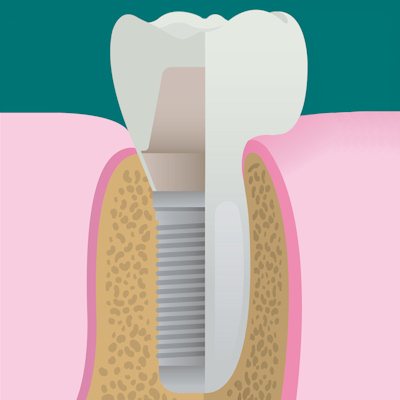 How do the long-term results of short implants compare with those of long implants placed after maxillary sinus augmentation? To get a clear look at the risks and benefits of each, researchers conducted a comprehensive review and meta-analysis of randomized controlled trials that directly compared the two methods.
How do the long-term results of short implants compare with those of long implants placed after maxillary sinus augmentation? To get a clear look at the risks and benefits of each, researchers conducted a comprehensive review and meta-analysis of randomized controlled trials that directly compared the two methods.
 Soft drinks account for 20% of children's total beverage consumption, according to a new report from the U.S. Centers for Disease Control and Prevention (CDC). Researchers looked at total drink consumption habits of U.S. children ages 2 to 19.
Soft drinks account for 20% of children's total beverage consumption, according to a new report from the U.S. Centers for Disease Control and Prevention (CDC). Researchers looked at total drink consumption habits of U.S. children ages 2 to 19. With more general practitioners offering clear-aligner treatments, being up-to-date on the biological mechanisms and pharmaceuticals that might affect tooth movement is crucial. A new comprehensive review describes the issues related to effective orthodontic treatment.
With more general practitioners offering clear-aligner treatments, being up-to-date on the biological mechanisms and pharmaceuticals that might affect tooth movement is crucial. A new comprehensive review describes the issues related to effective orthodontic treatment.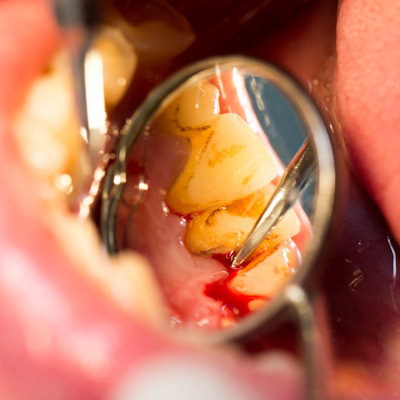 Rheumatoid arthritis (RA) and periodontitis are chronic inflammatory diseases that share common risk factors. Researchers conducted periodontal exams on patients with rheumatoid arthritis to determine what bacteria were present and how these patients might benefit from periodontal treatment.
Rheumatoid arthritis (RA) and periodontitis are chronic inflammatory diseases that share common risk factors. Researchers conducted periodontal exams on patients with rheumatoid arthritis to determine what bacteria were present and how these patients might benefit from periodontal treatment.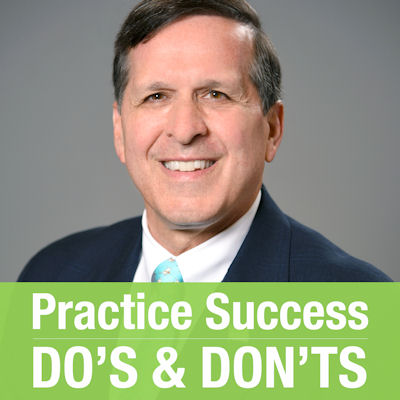 Some people say that how you start your day is how you'll end it. So it's important to begin the day on the right note. Rally the troops and set the expectation for a productive day that includes great attitudes, stellar customer service, and excellent clinical care, advises Dr. Roger P. Levin in his latest Practice Success tip.
Some people say that how you start your day is how you'll end it. So it's important to begin the day on the right note. Rally the troops and set the expectation for a productive day that includes great attitudes, stellar customer service, and excellent clinical care, advises Dr. Roger P. Levin in his latest Practice Success tip. Nanoparticles have the potential to enhance almost every aspect of dentistry, from radiographs and restoratives to orthodontics and oral surgery. A scientific paper highlighted some possibilities for how dentists may use nanoparticles.
Nanoparticles have the potential to enhance almost every aspect of dentistry, from radiographs and restoratives to orthodontics and oral surgery. A scientific paper highlighted some possibilities for how dentists may use nanoparticles.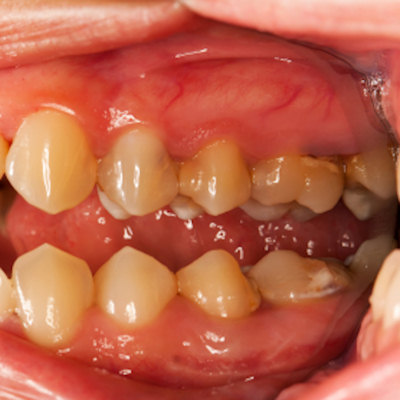 Interest in the link between periodontal health and systemic disease has been growing, with researchers investigating possible connections between oral health and diseases including artherosclerosis, diabetes, pregnancy outcomes, and respiratory conditions. But what has recent research found?
Interest in the link between periodontal health and systemic disease has been growing, with researchers investigating possible connections between oral health and diseases including artherosclerosis, diabetes, pregnancy outcomes, and respiratory conditions. But what has recent research found?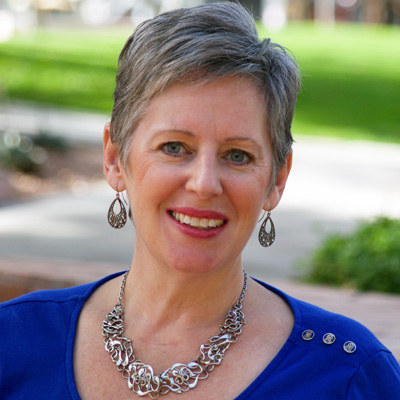 Negative online reviews can seem damaging to your practice, but there are ways to handle these reviews and come back stronger. Practice management consultant Jen Butler offers five practical tips for dealing with bad reviews.
Negative online reviews can seem damaging to your practice, but there are ways to handle these reviews and come back stronger. Practice management consultant Jen Butler offers five practical tips for dealing with bad reviews. Join hundreds of your peers and colleagues in participating in the nominations process for the 2018 DrBicuspid Dental Excellence Awards. You only have until midnight on September 28 to make your voice heard and help honor the best new products in dentistry.
Join hundreds of your peers and colleagues in participating in the nominations process for the 2018 DrBicuspid Dental Excellence Awards. You only have until midnight on September 28 to make your voice heard and help honor the best new products in dentistry.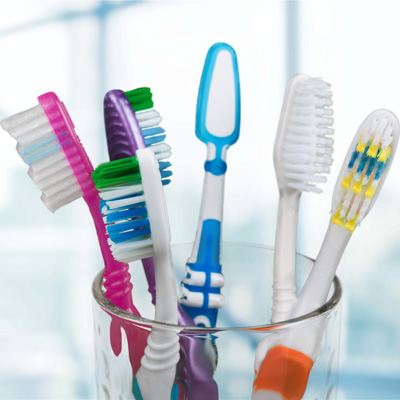 Should a manual toothbrush have soft or hard bristles? Answering that question involves more than just measuring plaque removal, so researchers wanted to know if the literature could point to a recommendation about bristle softness, gingival adhesions, and bristle shape. They published their review findings in the International Dental Journal.
Should a manual toothbrush have soft or hard bristles? Answering that question involves more than just measuring plaque removal, so researchers wanted to know if the literature could point to a recommendation about bristle softness, gingival adhesions, and bristle shape. They published their review findings in the International Dental Journal.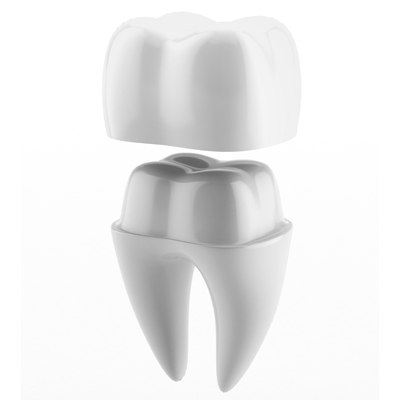 All-ceramic CAD/CAM crowns are a treatment option for full-coverage restorations for endodontically treated teeth, but how do they resist fracturing? Researchers compared two kinds of crowns to see which held up best.
All-ceramic CAD/CAM crowns are a treatment option for full-coverage restorations for endodontically treated teeth, but how do they resist fracturing? Researchers compared two kinds of crowns to see which held up best.